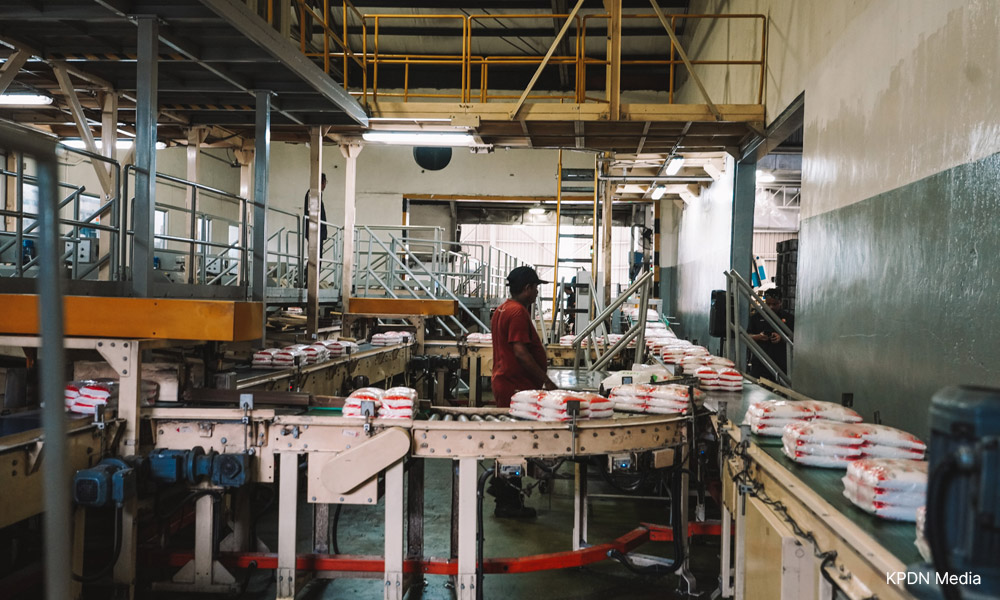MP SPEAKS | In a move that sent shockwaves through global markets early this morning, the US announced a sweeping imposition of country-specific tariffs on all Asean member states.
Citing trade imbalances, alleged unfair subsidies, and national security concerns, the new measures mark a significant shift in global trade dynamics.
Effective from April 9, the tariffs - ranging from 10 percent to nearly 50 percent - will apply to almost all products exported from Asean countries to the US, with only a few exceptions.
While the severity varies across nations and sectors, the message is unmistakable - the world is entering a new era of economic nationalism and deglobalisation, and Southeast Asia finds itself at the frontline.
For individual Asean economies, the implications are profound. Many Southeast Asian countries have long depended on export-led growth, with the US playing a crucial role as a major market.
Economic repercussions: National, regional challenges
The claim that developing nations have taken advantage of the US economy overlooks a vital truth: American consumers have reaped the benefits of affordable, high-quality goods for decades - products manufactured through the tireless labour of workers across the Global South.

These new tariffs threaten to disrupt global supply chains, deter investment, and slow gross domestic product growth - at a time when Asean nations urgently need robust economic performance to combat poverty, improve education, and address climate change.
At the regional level, fragmented trade flows risk weakening Asean’s collective influence in the global economy.
As US measures reverberate across interconnected supply chains, intra-Asean trade may face friction, especially if member states begin adopting inward-looking policies to protect domestic industries.
Asean’s position as a unified economic bloc - projected to become the world’s fourth-largest economy by 2030 - risks being undermined if countries fail to coordinate responses to these external shocks.
Human cost: Ordinary lives, extraordinary strain
Beyond economic metrics lies a deeper human toll. Millions of working-class citizens - particularly in manufacturing hubs like Indonesia, Thailand, and Vietnam - face the grim prospects of declining export demand, reduced factory output, and job losses.
Small and medium enterprises (SMEs), which make up more than 90 percent of Asean businesses, are especially vulnerable.

Operating on narrow margins and often lacking access to credit, many SMEs will struggle to absorb the impact of new tariffs or pivot to alternative markets.
Consumers, too, will feel the pain. As demand softens and supply chains shift, imported goods will become costlier and scarcer.
The situation could worsen if the US dollar strengthens or interest rates remain high, triggering imported inflation in essential goods such as food, fuel, and medical drugs.
These inflationary pressures will disproportionately affect lower-income households, deepening inequality across a region still recovering from the pandemic and grappling with surging living costs.
Defining moment: Asean solidarity amid deglobalisation
This is not merely a trade dispute - it is a structural rupture. What we are witnessing is the unraveling of the post-World War II international order, marked by rising protectionism, geopolitical fragmentation, and shifting trade alliances.
Deglobalisation is not a temporary trend; it is a fundamental shift in how nations engage with one another.
This unprecedented crisis is also a pivotal test of Asean’s unity and resilience. If Asean responds piecemeal - country by country, sector by sector - it will lose ground. But if it acts collectively, it can emerge stronger against the global headwinds.

The region must deepen intra-Asean economic integration by accelerating initiatives such as the Asean Trade in Goods Agreement upgrade, harmonising standards, and reducing non-tariff barriers.
Investment in regional infrastructure, digital trade, and sustainable industries can create new engines of growth, less dependent on volatile external markets.
Crucially, Asean must also present a unified voice in global forums like the World Trade Organization (WTO) and the G20, advocating for fair and open trade.
Moreover, policies must be crafted with people at the centre. Social safety nets, upskilling programmes, and SME support mechanisms must be scaled up to cushion the impact of global shifts.
A more connected and compassionate Asean - one that not only competes but also foster trust - will be key to weathering this storm.
Unity, courage, and commitment
At this critical juncture, Asean faces a choice: retreat into fragmented, reactive strategies or rise together with renewed purpose and solidarity.
The path forward will not be easy. It demands courage, coordination, and an unwavering commitment to each other - and to the millions who call this region home. - Mkini
LEE CHEAN CHUNG is Petaling Jaya MP.
The views expressed here are those of the author/contributor and do not necessarily represent the views of MMKtT.




No comments:
Post a Comment
Note: Only a member of this blog may post a comment.